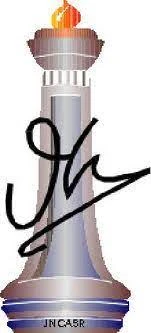Overview
Jawaharlal Nehru Centre for Advanced Scientific Research is an interdisciplinary research foundation located in Jakkur, territory north of Bangalore in India. It is relatively not that old, yet notable around the world. JNCASR’s command is to chase and further top-notch research and training at the fringes of Engineering and Science covering wide areas going from Materials to Genetics. It gives a dynamic scholastic atmosphere facilitating in excess of 300 odd researchers. JNCASR, a Deemed-to-be University, is an autonomous establishment under the Department of Science and Technology of Government of India.
Academic Performance
The little size, around that of 50 faculty members spread over various streams is a favourable position- not isolated in distant labs, their scientists, physicists, scholars and specialists rub shoulders for the duration of the day. This encourages a feeling of interdisciplinary joint effort which is one of the signs of Jawaharlal Nehru Centre for Advanced Scientific Research.
Along with the young and dynamic members of the faculty, they have more than 300 splendid and enthusiastic graduate students and cutting-edge experimental and infrastructural facilities. They are a Deemed University offering Master’s and Ph.D. degrees.
Research & Development
The researchers at JNCASR are categorized into 9 divisions- Educational Technology, Engineering Mechanics, Geodynamics, Evolutionary and Integrative Biology, Chemistry and Physics of Materials, Molecular Biology and Generics, Neuroscience, New Chemistry and Theoretical Sciences. Though it is obviously hard to measure logical execution, by every single mathematical sign(quantities of distributions, references, awards, licenses recorded, and the likes), science at the JNCASR is thriving. Over the most recent couple of years, JNCASR’s members of faculty have published their research work in some of the most distinguished scientific journals like Nature Medicine, Evolution, Nature, Science, the Journal of the American Chemical Society, the journal of Fluid Mechanics, Angewandte Chemie, and Physical Review Letters. Various awards too are recognizing the work of the faculty members of JNCASR.
Notable Alumni
Anupama Ranganathan made a study on “Investigations of hydrogen-bonded organic solids by x-ray crystallography and experimental charge densities.” Gargi Raina’s work involved “Investigations of molecular clusters and other species employing a cluster beam apparatus.” P. John Thomas studied “Mesoscopic organisation and properties of nanocrystals of metals, metal oxides and other materials.” R. Srinivasa Gopalan studied “Investigations of molecular crystals using experimental charge density.”
T.Bhuvana is a distinguished alumnus from JNCASR pursuing his research at Purdue University at the Brick Nanotechnology Centre. Reji Thomas has gone on to Hokkaido University in Japan. T. Vijaykumar is working with Pennsylvania State University, USA. Pinaki Bhattacharya, Karteek K Bejagam, Sheetal Potdar and Madhura Marathe are few of the other distinguished researchers from JNCASR. Parijat Senapati, the Indian Biotechnologist is an alumnus from JNCASR. Sutapa Roy affiliated with Max Planck Institute for Intelligent Systems researching on soft matter, statistical and computational Physics is an alumna of JNCASR from the 2008-13 batch. Shrikanth S. Gadad researching on Transcription, Cancer, Gene Regulation and Signalling is from the 2004 – 2010 batch of JNCASR.

